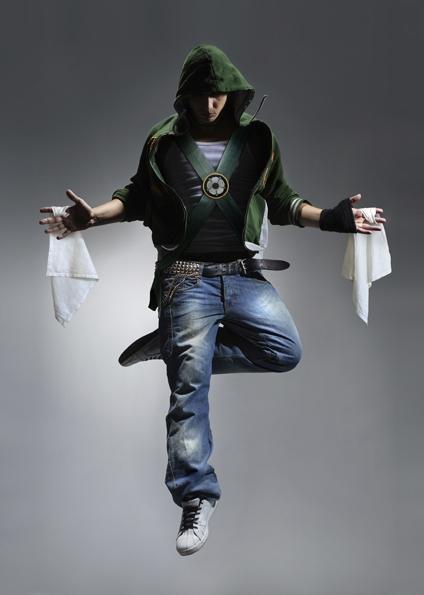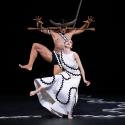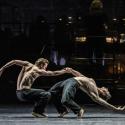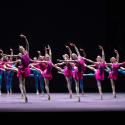Yorkshire folkies The Demon Barbers have used English dance in their live shows for several years. Time Gentlemen Please takes the idea a step further, integrating contemporary dance stylings within a cast of more traditional types. Thus three hip-hop dancers barge into a musty pub and you’re immediately aware of their sense of displacement. Their moves are jerky and uncomfortable, their body language hinting at deep unease. Then on come the clog dancers.
Damien Barber, one of the Demons, writes in the programme that to try and reach a larger and younger audience it was necessary to work with artists outside the UK folk scene. This resulting show, while still a work in progress, has evolved over the past three years with help from Yorkshire Dance and Arts Council funding. A sort of "West Yorkshire Side Story", it loosely dramatises the rivalry between two sets of factions in a northern community.
The English clog dancers, their syncopated foot stamps given extra heft by Ben Griffith’s percussion. The street dancers, by contrast, send out entirely different messages through their physicality. One character called Didge, for example, sits on a barstool with his legs wide apart. It’s a commentary on the rituals of contemporary courtship. It’s also very funny.
The band initially stay to the side of the action, slowly becoming more involved, though their contributions are not always inititally welcome. There’s a magical moment when Damien Barber begins to sing a dreary song about ravens and the other drinkers ignore and mock, until the song takes flight and soars. Snooker cues beat out menacing tattoos, before becoming the main props in a rapper sword dance, climaxing with the six cues held aloft in a star shape. It’s dazzling and terrifying to observe, as is the Longsword dance (this time with metal swords) later on. Miraculously, no one gets hurt and nothing is ever dropped.
The Demon Barbers accompany onstage for nearly 90 minutes; it’s Briony Griffith’s fiddle playing that keeps things tightly organised. It seems unfair to single out any of the dancers, but Bobak Walker’s work as one of the hip-hop crew and as lead choreographer shows generosity and real versatility; everyone gets a chance to shine.
As the evening progresses, the boundaries are broken down, and mutual respect develops between the opposing camps. There’s something wild and slightly unhinged about the atmosphere: this madness and anarchic energy found in some aspects of “traditional” English culture. There are moments in this production which on the face of it are deeply silly: two blokes spring to mind who skip about waving hankies at each other. But overall it is compelling. The awful car crash of genres never happens. Hip hop and clogs co-exist happily. Morris dancing meets Krumping.















Add comment